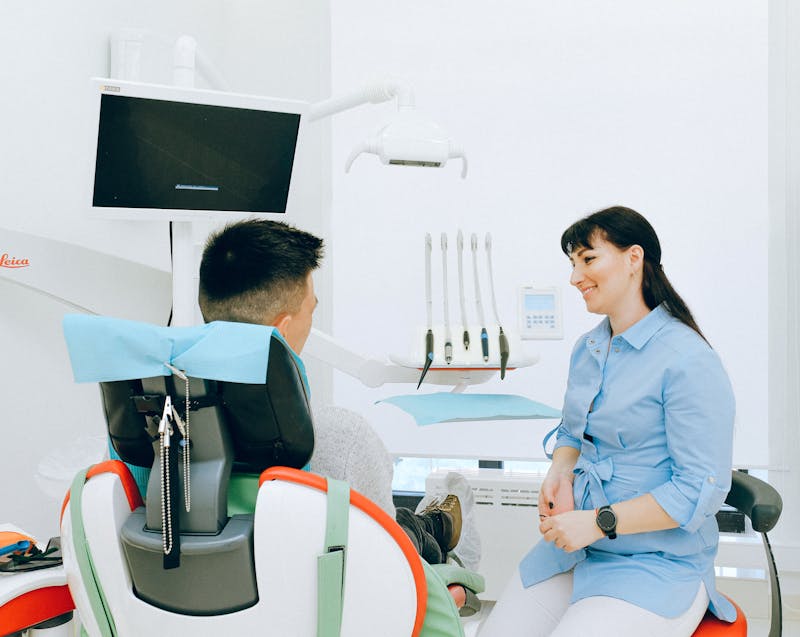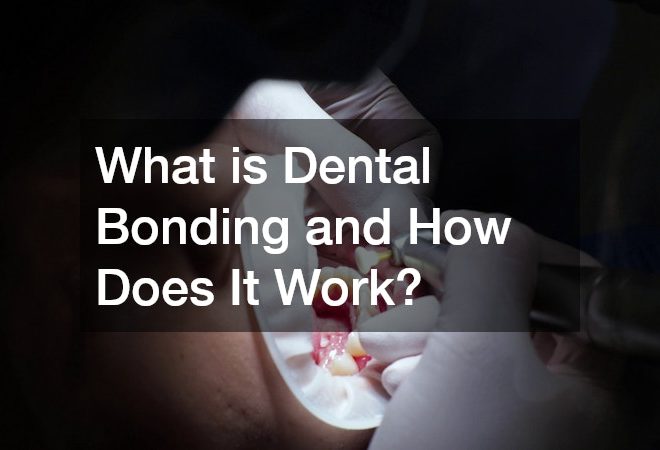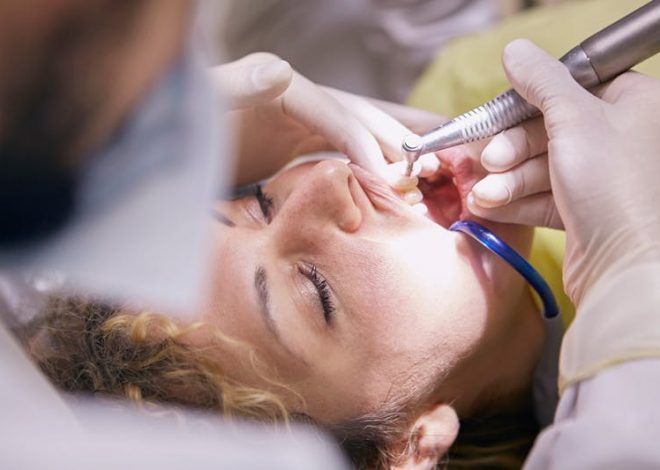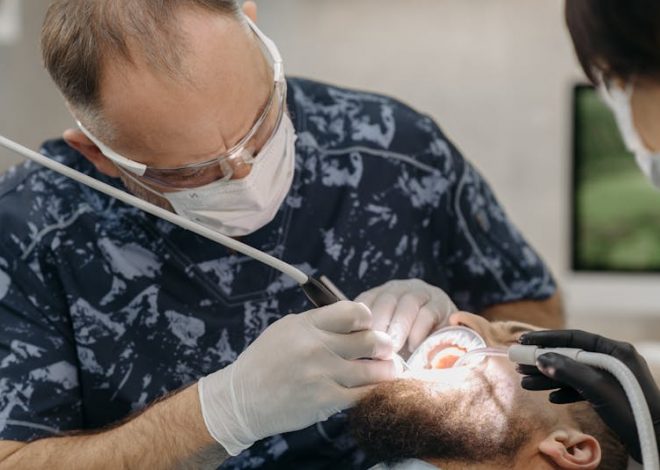
How to Find a Dentist Who Fits Your Lifestyle and Health Goals

- Oral health is closely connected to overall wellness, affecting heart health, metabolism, confidence, and fitness performance.
- Defining your personal dental goals—whether preventive, cosmetic, family-focused, or holistic—helps narrow your search.
- When trying to find a dentist, key factors to consider include credentials, services offered, technology, accessibility, and financial options.
- Lifestyle plays a major role: athletes, families, busy professionals, and older adults may all need different types of care.
- Research thoroughly by checking directories, reviews, and referrals, and prepare specific questions for your first visit.
- Watch out for red flags such as unnecessary upselling, outdated methods, poor communication, and hidden costs.
- Building a long-term relationship with the right dentist creates consistency in preventive care and supports overall health goals.
When it comes to building a healthy lifestyle, most people focus on nutrition, fitness, and sleep. Yet one area that often gets overlooked is dental care. Oral health is not only about having a bright smile—it’s directly linked to overall wellness. Conditions such as gum disease, cavities, or untreated oral infections can influence cardiovascular health, energy levels, and even athletic performance. That’s why choosing the right dental professional is just as important as choosing a doctor, personal trainer, or nutritionist.
If you’ve ever asked yourself how to find a dentist who truly fits your needs, the process can feel overwhelming. With so many options available, it’s important to know what to look for, how to evaluate your choices, and how to align dental care with your unique lifestyle and health goals.
This guide will walk you through each step, offering practical advice for different situations so you can make an informed decision that benefits your long-term well-being.
Why Oral Health Matters for Overall Wellness
Oral health plays a vital role in more than just having a bright smile—it reflects the state of your overall wellness. Neglecting proper care of your teeth and gums has been associated with serious health concerns such as cardiovascular disease, diabetes, and certain respiratory problems. In addition to these systemic risks, dental issues can disrupt daily life, making it harder to enjoy meals, get restful sleep, or feel confident in personal and professional interactions.
Some important ways oral health influences general wellness include:
- Heart and Circulatory Health: Gum disease has been linked to increased risks of cardiovascular problems due to chronic inflammation.
- Metabolic Health: Poor dental hygiene can worsen conditions like diabetes, making blood sugar harder to manage.
- Digestive Efficiency: Healthy teeth and gums improve chewing, which helps the body absorb nutrients more effectively.
- Mental Well-Being: A confident smile can reduce anxiety in social situations and boost overall self-esteem.
- Fitness and Performance: Athletes with untreated dental issues may experience reduced performance due to discomfort or chronic inflammation.
Recognizing the link between oral care and full-body health underscores why finding the right dentist is such a vital decision.
Defining Your Dental Health Goals

Before you start searching, it’s important to clarify what you want out of your dental care. Different people have different goals, and the right dentist should align with your priorities.
Consider the following questions:
- Do you need a dentist mainly for preventive care like cleanings and checkups?
- Are you interested in cosmetic improvements such as whitening or smile design?
- Do you participate in sports and require protective gear like custom mouthguards?
- Are you a parent looking for a family-focused dentist who works well with children?
- Are you seeking someone with a holistic approach that emphasizes the link between oral and overall health?
By clearly defining your needs, you can narrow your search and focus on finding a dentist who offers the right combination of skills, services, and approach.
Key Factors to Consider When Choosing a Dentist
When searching for a dentist who matches your lifestyle, there are several practical and professional considerations to weigh. The best choice goes beyond convenience—it involves evaluating expertise, services, and patient-centered practices.
Location and Accessibility
- Proximity to home, workplace, or even your gym can make scheduling easier.
- Look for flexible office hours that fit around your work or training schedule.
- Consider whether the practice is accessible by public transport or offers parking.
Credentials and Experience
- Check whether the dentist is licensed and participates in continuing education.
- Evaluate their years of practice and areas of expertise.
- Some may specialize in preventive, cosmetic, or restorative care depending on your needs.
Range of Services
- Preventive treatments: routine cleanings, fluoride, and sealants.
- Restorative care: fillings, crowns, implants.
- Cosmetic dentistry: whitening, veneers.
- Specialty care: gum disease treatment, orthodontics.
Use of Technology and Modern Methods
- Digital X-rays reduce radiation exposure and offer precise imaging.
- Laser dentistry can minimize discomfort and speed up recovery.
- Intraoral cameras allow patients to see what the dentist sees for a better understanding.
Patient-Centered Care
- A good dentist listens to concerns and explains treatment plans clearly.
- Practices that tailor solutions to each individual tend to provide higher satisfaction.
- Compassionate communication is particularly important for patients with dental anxiety.
Financial Considerations
- Ensure the office accepts your insurance or offers flexible payment plans.
- Ask about transparent pricing before committing to procedures.
- Some practices may accept health savings accounts or financing options.
By combining these factors, you’ll be in a much stronger position to make the right choice.
Lifestyle-Specific Considerations
Not every dentist is a perfect fit for every person. Your lifestyle and goals should influence your decision when you’re trying to find a dentist who meets your unique needs.
For Athletes and Active Individuals
- Look for a dentist who offers custom sports mouthguards to prevent injuries.
- Regular monitoring for teeth grinding, which can be common among athletes.
- Advice on nutrition’s impact on oral health, especially with high-carb energy foods.
For Busy Professionals
- Extended office hours, including evenings or weekends.
- Online appointment booking and reminders.
- Same-day procedures that save time.
For Families
- Pediatric-friendly environments that help children feel comfortable.
- Preventive education for parents and kids.
- Multi-specialty practices where the whole family can receive care in one place.
For Health-Conscious Patients
- Practices offering holistic approaches, such as biocompatible materials.
- Guidance on how diet, hydration, and fitness influence oral health.
- Preventive strategies focused on long-term wellness rather than short-term fixes.
For Older Adults
- Dentists with expertise in managing implants and dentures.
- Preventive approaches to gum disease and bone loss.
- Support for dry mouth or sensitivity issues related to medications.
Aligning your dental care with your lifestyle ensures that oral health supports—not disrupts—your daily routine and long-term goals.
How to Research and Compare Dentists
Once you’ve identified your priorities, the next step is gathering information. Researching and comparing dental professionals helps you avoid making a rushed or uninformed choice.
Steps to Research Effectively
- Use professional directories: Many associations provide searchable lists of licensed practitioners.
- Read patient reviews carefully: Look for recurring themes, such as clear explanations, punctuality, or comfort during procedures.
- Check office websites: See whether they highlight specialties, technology, or preventive care approaches.
- Ask for referrals: Friends, family, and healthcare providers can provide trustworthy recommendations.
- Visit the office in person: Observing cleanliness, staff friendliness, and atmosphere can reveal a lot about a practice.
Questions to Ask During a First Visit

The initial consultation is an excellent opportunity to evaluate whether a dentist is the right fit. Prepare a list of questions that address your goals and expectations.
Examples include:
- What is your philosophy when it comes to preventive care?
- Which technologies do you use to improve accuracy and patient comfort?
- How do you tailor treatment plans for individual needs?
- What options are available for anxious patients or those who prefer sedation?
- Do you provide emergency care after hours?
- How do you ensure transparency in pricing and treatment recommendations?
The responses will give you insight into whether the dentist prioritizes patient care and aligns with your values.
Red Flags to Watch Out For
Not every dental practice operates with patient-first values. Knowing the warning signs can save you from frustration and poor outcomes.
Potential red flags include:
- Pushing unnecessary treatments without explaining alternatives.
- Outdated equipment or methods that compromise comfort and accuracy.
- Lack of transparency about costs or insurance acceptance.
- Poor communication or a dismissive attitude toward questions.
- Multiple patient reviews highlighting the same negative experiences.
If you encounter these issues, it may be wise to continue your search.
Building a Long-Term Partnership
Dental care isn’t just a one-time appointment—it’s an ongoing relationship. Finding the right professional means creating a partnership that grows with your health needs over time.
Benefits of Long-Term Relationships
- Consistency in preventive care reduces the risk of future problems.
- A dentist who knows your history can identify subtle changes quickly.
- Strong communication builds trust, making it easier to discuss concerns.
- Personalized treatment plans evolve as your lifestyle and health goals change.
Practical Tips
- Stick to routine cleanings and checkups, even when you feel fine.
- Be open about changes in your health, medications, or habits.
- Use your dentist as part of your broader health team, alongside doctors and fitness experts.
Conclusion
Learning how to find a dentist who fits your lifestyle and health goals is more than a matter of convenience—it’s a step toward holistic health and long-term well-being. By defining your goals, researching options, asking the right questions, and watching for red flags, you can choose a dental professional who truly supports your journey.
Think of your dentist as a partner in health, much like a trainer or nutritionist. Together, you can work toward not only a healthier smile but also better overall wellness, energy, and confidence. Start your search today, and prioritize oral health as an essential part of your lifestyle.


